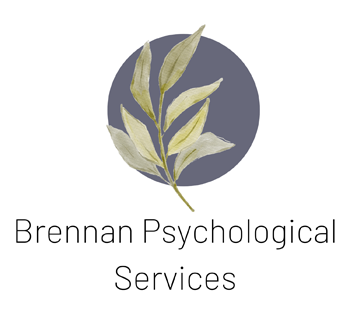
Pregnancy & Postpartum Therapy
Are you worried about pregnancy and postpartum mental health symptoms? Do you fear you won’t be able to juggle the responsibilities of being a parent? Learn how pregnancy and postpartum therapy can support you throughout this challenging time.
Having a baby can be exciting, terrifying, joyful, lonely, painful, nerve-wracking, or all of these mixed together. Whether you're expecting or bringing your baby home, it’s essential not to overlook your mental health and well-being.
Many parents struggle with sadness and anxiety after a new baby is born. Although postpartum mood disorders are commonly believed to only happen for mothers who give birth, dads, other non-birthing partners, and new adoptive parents can also experience depression and anxiety.
Postpartum depression goes beyond the “baby blues”. It can magnify the challenges of being a new parent — such as the lack of sleep and exhaustion — making it even harder to find joy in the early months of parenthood.
As both a mother of two young children and a certified perinatal mental health therapist, I love to support new and expecting parents in navigating the ups and downs of pregnancy and postpartum. Let’s work together to embrace this new chapter of your life with confidence!
I’m experienced in helping clients manage symptoms of pregnancy and postpartum depression including:
Feeling overwhelmed.
Crying more frequently than usual.
Feeling like you aren’t able to enjoy things as much as you used to, or being less interested in the things you used to enjoy.
Feeling guilty.
Difficulty sleeping (even when your baby is sleeping).
Online Therapy for Pregnancy & Postpartum Mental Health in Georgia and PSYPACT States
If you are preparing for your baby’s arrival or going through the motions of caring for a newborn, you might feel there is not enough time in the day to do it all, let alone take care of your emotional needs and well-being.
Online therapy allows you to get the support you need from your own home, without sacrificing the little time you have right now.
Have you experienced Birth Trauma?
Did you have unexpected medical complications during labor? Or had to live through the experience of having your newborn baby in the NICU?
Traumatic experiences during birth can lead to significant anxiety, worry about the well-being of yourself or your baby, and upsetting memories of the trauma. Trauma can affect people in a multitude of different ways. You may try to avoid memories of the birth, feel more isolated or disconnected from others, or feel more anxious and on edge.
Seeking support from a specialized therapist in trauma and perinatal mental health can help you move on from your birth trauma and process painful memories and emotions.
Are you struggling with Pregnancy and Postpartum OCD and Anxiety?
Have you been feeling more anxious? Do you find yourself constantly worrying about your baby's well-being? Are you concerned about how a new child will impact your life, work, finances, health, and relationships? These can be signs you are experiencing pregnancy and postpartum anxiety.
Postpartum obsessive-compulsive disorder (OCD) can also contribute to high levels of anxiety in new moms. OCD involves intrusive thoughts or images that often lead to compulsions or efforts to avoid the intrusive thoughts. You may find that the more you try to control these thoughts, the stronger they become. But you can find support to overcome it!
You can experience postpartum OCD, even if you have never experienced symptoms of OCD before. That is why it is crucial for parents to understand and watch out for symptoms and start treatment early on.
Many people suffer in silence due to embarrassment, shame, or fear of judgment if they speak up. You don’t have to face it alone! Therapy can help you learn healthier ways to face your fears and move forward.
How Pregnancy & Postpartum Therapy Can Help?
1. Evidence-Based Treatment
If you are experiencing perinatal depression, anxiety, PTSD, or OCD, there are effective evidence-based therapies — such as Exposure and Response Prevention — that can help you recover. During our initial sessions, we will work together to explore the treatment options that best fit your needs.
2. Compassion and Empathy
In addition to my training and experience as a psychologist, I am also a mother who had to learn — and is still learning — to navigate the challenges of parenting. If you are looking for a professional who can connect with what you’re going through, I’m here for you!
3. Caring For You Is Caring For Others
Asking for help is an act of strength. Therapy can help you take better care of yourself and regain the energy and confidence to take care of those who need you the most.
How to Get Started?
-

1. Schedule a free 15-minute consultation
Start with a free phone consultation to ensure you find the right match for what you’re looking for in therapy. You will also have a chance to ask about fees and insurance, scheduling, or any other questions.
-

2. Meet me for an initial intake
The initial intake is a 75-minute session where we explore the stressors and difficult situations in your life, your background, and your goals for treatment. This will mark the beginning of your therapy journey.
-

3. Live your pregnancy and postpartum with joy
There is no right way of being a parent. Together we will develop the skills to navigate the ups and downs of pregnancy and postpartum and embrace parenthood's changes with confidence by prioritizing your mental well-being.



